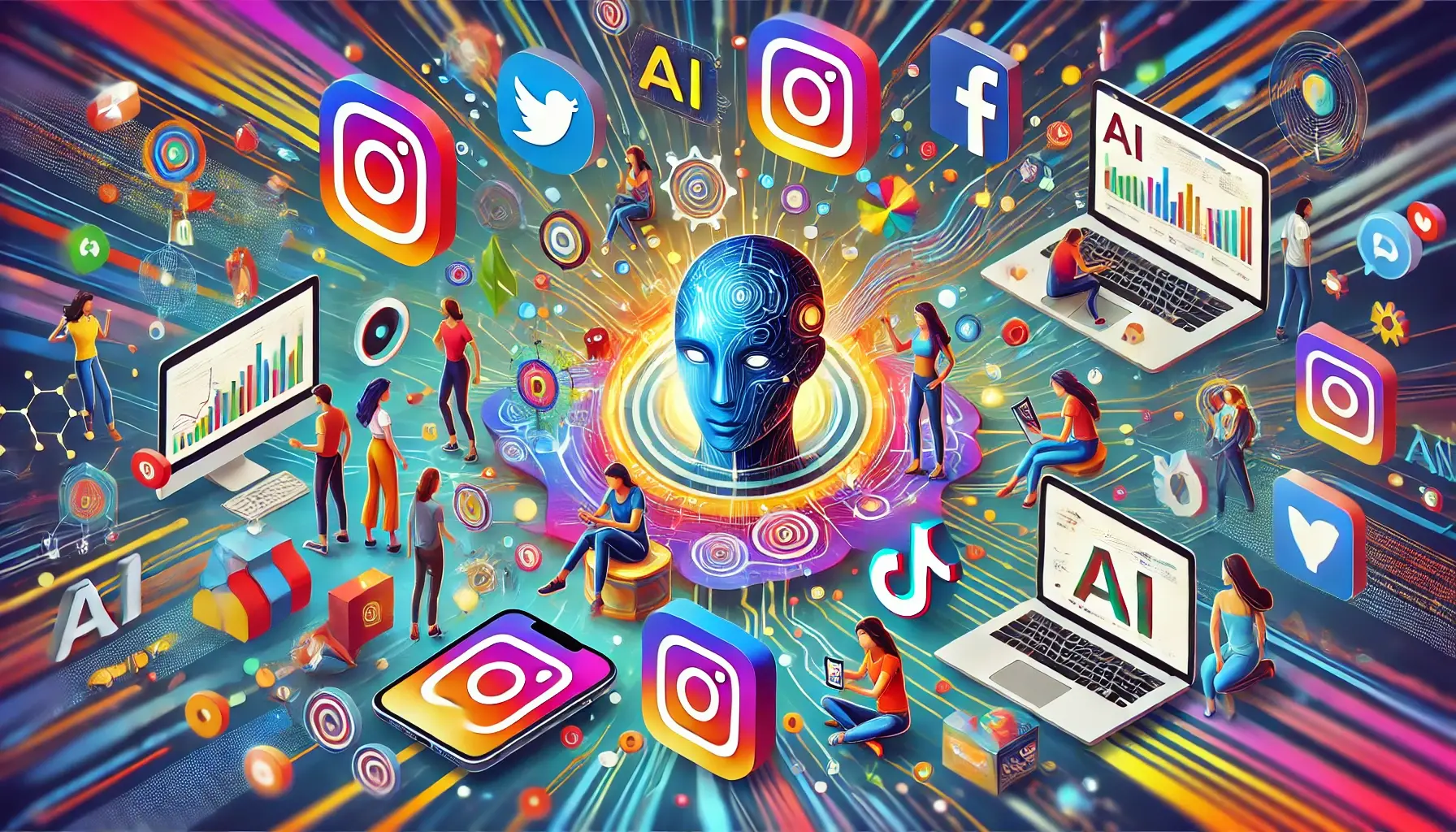Artificial intelligence has brought considerable changes for both influencers and regular users of social media. By leveraging advanced algorithms and machine learning, AI has enhanced various aspects of social media, from content creation and audience engagement to personalized experiences and security measures. This article discusses the impact of AI on social media, focusing on key areas for influencers and regular users.
Audience Growth
AI analytics tools provide insights into followers' demographics, interests, and behaviors. By analyzing this data, influencers can tailor their content to better meet the preferences of their audience. For instance, AI can identify which types of posts generate the most engagement and at what times followers are most active, allowing influencers to optimize their content strategies.
Furthermore, staying ahead of trends is crucial for influencers to remain relevant. AI excels in trend prediction by analyzing vast amounts of data from social media platforms, blogs, news, and other sources. These predictive models identify emerging trends and suggest content ideas that resonate with the target audience.
Content Optimization
AI automates A/B testing by creating multiple variations of a post, ad, or caption and analyzing their performance in real time. By comparing engagement metrics, AI determines which version performs best. This continuous testing and optimization enables influencers to refine their content strategies, ensuring engagement with their audience.
Moreover, Search Engine Optimization (SEO) also plays a crucial role in social media visibility. AI in SEO analyzes keywords, hashtags, and trends. These tools recommend the best keywords and hashtags to increase influencers’ reach.
Social Media Consumption
AI-based personalized feeds have transformed the way regular users consume content. Machine learning algorithms analyze users' preferences and behaviors to create customized feeds. By understanding what types of posts, videos, and images users engage with the most, AI ensures that users see more of what they like. This personalization enhances user experience by delivering relevant and interesting content.
Content discovery is another area where AI helps social media users. AI-powered recommendation systems suggest new accounts to follow, videos to watch, and articles to read based on users' past interactions. These recommendations are constantly refined to adapt to users' evolving preferences.
Privacy & Security
AI plays a vital role in maintaining the security of social media platforms. One significant application is fraud detection. AI algorithms can identify and flag suspicious activities, such as fake accounts, spam, and bots. By analyzing patterns and behaviors that deviate from the norm, AI helps prevent fraudulent activities and ensures that users interact with genuine accounts.
Additionally, misinformation and fake news are pervasive issues on social media. AI tackles this problem by verifying the authenticity of content. It analyzes the credibility of sources, cross-checks facts, and identifies manipulated images and videos. By flagging or removing false information, AI helps users access accurate and reliable content.
Conclusion
AI has significantly changed social media, benefiting both influencers and regular users. For influencers, AI enhances audience growth through detailed follower insights and trend prediction, while optimizing content with A/B testing and SEO practices. For regular users, AI improves content consumption by personalizing feeds and providing tailored recommendations, in addition to increasing security through fraud detection and content authenticity measures. As AI technology continues to evolve, its impact on social media will grow, creating more engaging, personalized, and secure experiences for everyone.

